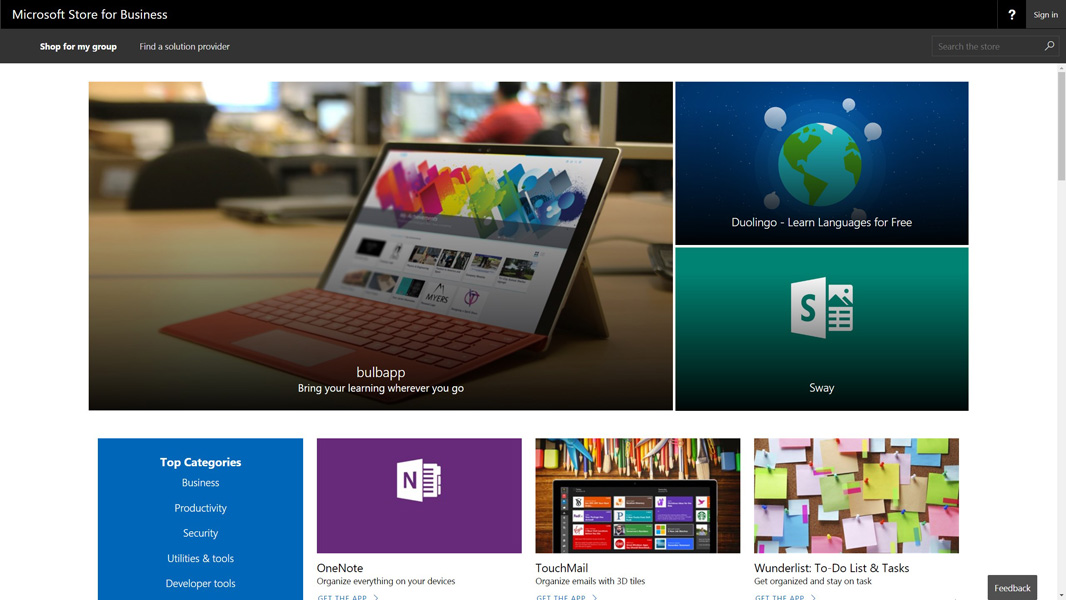Microsoft Takes Another Step Back From Its App Store
- Paul Thurrott
- Jan 10, 2020
-
33

Last year, I wondered openly whether the Microsoft Store—Windows 10’s app store—was on the way out. Since then, the software giant has taken some decisive steps towards that once-imagined future. At Build 2019, it revealed that so-called Store apps—which now encompass several kinds of apps—would no longer need to be distributed from the Microsoft Store in Windows 10. And now we’ve learned that Microsoft is killing off the business- and education-based versions of the store.
News of the demise of the Microsoft Store for Business and the Microsoft Store for Education comes via the reliable Mary Jo Foley, whose sources say that these stores are now deprecated as “the company works to undo past Windows 10 app-distribution mistakes.”
Windows Intelligence In Your Inbox
Sign up for our new free newsletter to get three time-saving tips each Friday — and get free copies of Paul Thurrott's Windows 11 and Windows 10 Field Guides (normally $9.99) as a special welcome gift!
"*" indicates required fields
To be clear, Microsoft hasn’t publicly acknowledged the changes. But Foley says that they will either be announced or implemented by the end of the software giant’s fiscal year, or June 30, 2020.
The trick here, of course, is that the one thing the various Microsoft Store variants have done well is serve as a place for downloads that were explicitly trusted by Microsoft. Kevin Gallo, Microsoft’s corporate vice president for the Windows developer platform, and the person most directly in charge of this part of the company, told Foley last year that he was still trying to figure out another way to communicate to users that apps could be trusted.
Given past miscommunications—the press was told at Build 2019 that UWP, Microsoft’s Windows 10-only development framework was “dead,” something the firm has not admitted publicly—I wouldn’t be surprised to discover that there’s no announcement about these changes, and that the two stores are simply quietly deprecated.
Regardless, these changes have me wondering anew about the Microsoft Store, which has never risen to the prominence of popular app stores like those from Apple and Google. I still believe that the Store is a good idea, but its lack of success is undeniable. As are the moves that Microsoft is making to ensure that trusted apps can be found and installed from elsewhere.
Conversation 33 comments
-
Stooks
<p>"<span style="color: rgb(0, 0, 0);">Microsoft Store, which has never risen to the prominence of popular app stores like those from Apple and Google."</span></p><p><br></p><p>Hmmm. You mean the iOS and Android stores….possibly the chrome browser extension store. Apple's Mac app store is a complete joke. </p><p><br></p><p>I am not a ChromeOS fan (never, ever will be) so I have only touched it once or twice but judging by the market share of Chrome OS I can imagine it is not very successful either. Then again every ChromeOS user has to use it, all .34% of the computer desktop users out there.</p><p><br></p><p>I like the Windows store and the security it brings. I like the way store apps, at least universal apps created their own registry hive and the easy install, update and remove. I like how I can easily move a store installed app, say a game from one drive to another in Windows 10 settings. I install my Xbox games from the store on to my gaming PC, hopefully they will have a replacement for that.</p>
-
willc
<p>Microsoft’s slow and steady dismantling of Windows continues…</p>